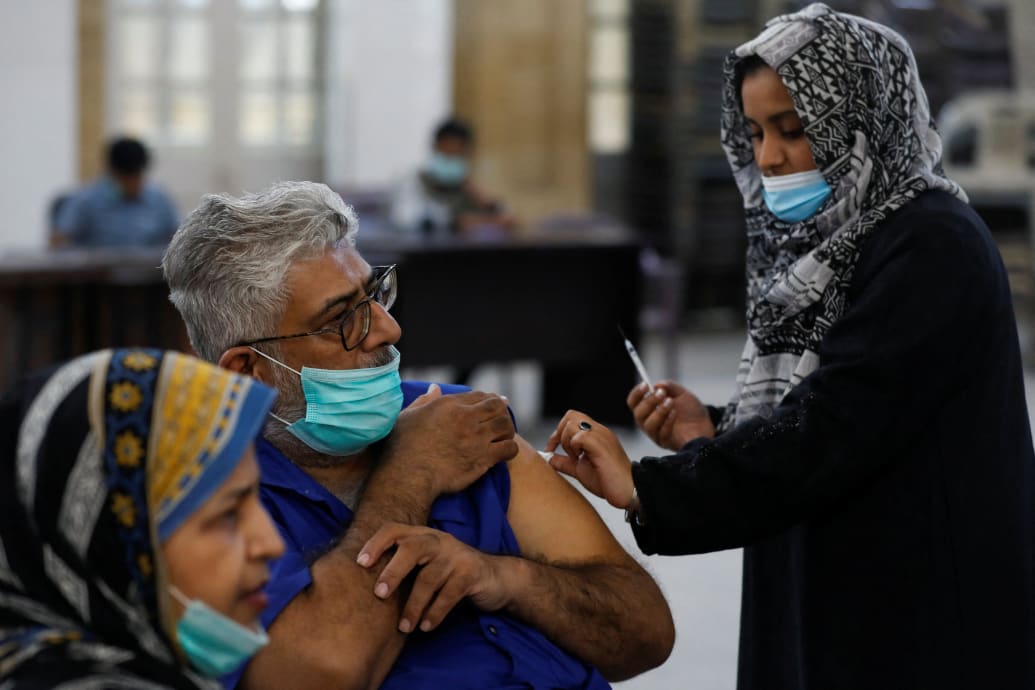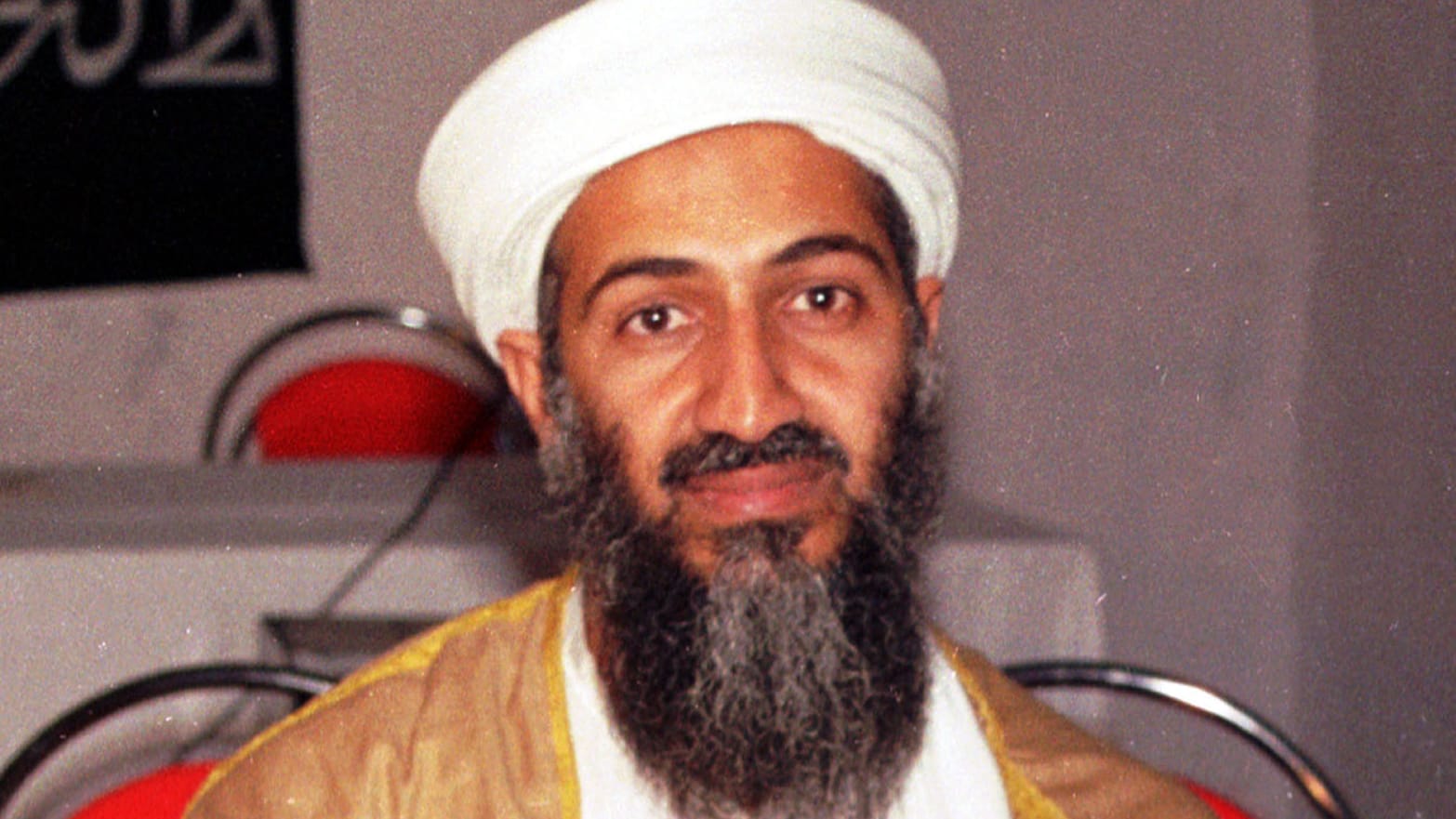Coronavirus vaccination rates around the world are low for myriad reasons: short supplies in developing countries, lack of trust in the governments handing out the jabs, and conspiracy theories about what’s in the vaccine and its side effects. But experts point to another possible factor which has gotten less attention: the CIA.
In its quest to find and kill Osama Bin Laden, spies at the CIA used a Hepatitis B vaccination program as cover in an attempt to collect DNA samples that could locate the 9/11 mastermind’s family in Abbottabad, Pakistan.
The effort was a flop and landed a doctor hired by the CIA in a Pakistani prison. But a decade later, public health experts and researchers say the caper could have helped erode crucial trust in vaccination efforts now necessary to end the coronavirus pandemic in Pakistan—and in some cases across the globe.
“The CIA’s fake vaccination program overstepped a boundary in that they engaged in an activity that is purely humanitarian and purely medical and health-related,” Sam Worthington, the CEO of InterAction, an alliance of international non-governmental organizations, told The Daily Beast. “By introducing a degree of lack of trust associated with vaccinations I think there’s harm done on vaccination programs in sensitive areas around the world.”
For years after the CIA’s fake campaign, the Taliban worked to attack polio vaccination efforts, citing concern that the programs could be a front for espionage. The Pakistani government ordered the charity Save the Children to exit the country after linking it to the CIA’s program. (Save the Children has denied it was involved.)
Since the campaign, Pakistanis have been backing away from vaccinations; even though the country was on the verge of eradicating polio at the time, it resurged after the CIA operation was revealed. Vaccination rates dropped by two-fifths, according to research recently published in the Journal of the European Economic Association, out of Oxford University Press. The World Health Organization soon after had to declare polio’s spread in several countries, including in Pakistan, an emergency.
The authors of the study on the CIA vaccine, Monica Martinez-Bravo and Andreas Stegmann, told The Daily Beast in a joint statement that “the disclosure of the vaccine ruse may have reduced trust in vaccines (and possibly the formal medical sector) by lending support to rumours and misinformation spread by groups such as the Pakistani Taliban.”
That skepticism seems to have lingered well into the coronavirus pandemic. It’s still unclear how much, specifically, the CIA’s covert inoculation effort may have complicated Pakistan’s current COVID eradication efforts, but polls show Islamabad is struggling to convince Pakistanis to get vaccinated against coronavirus. Nearly half of Pakistanis have expressed unwillingness to accept a COVID-19 shot if offered one, according to polls conducted by Gallup.

A healthcare worker administers a dose of the COVID-19 booster in Karachi, Pakistan, this month.
Akhtar Soomro/Reuters
“Vaccines are ultimately based on the ability of the population to accept them and when the trust of the population is broken it makes it more difficult for health or humanitarian actors to do the work that they do,” Worthington told The Daily Beast.
The CIA itself realized running a fake vaccine operation was a blunder and not worth the damage to public health and vaccine efforts in 2013. The spy agency banned using vaccination programs to conduct espionage then, according to a letter that Lisa Monaco, the president’s homeland security adviser at the time, wrote to deans of public health schools that had expressed concern.
When reached for a comment, a CIA spokesperson pointed out that vaccines were actually distributed in the campaign.
“The 2011 vaccinations in Pakistan were real, and many children received vaccinations through that program,” the spokesperson said. “In response to concerns raised by the public health community, in 2013 the then-CIA Director directed vaccine programs would not be used operationally going forward.”
The spokesperson suggested the CIA doesn’t believe the fact that it used a vaccine campaign to conduct espionage has led to mistrust or concerns around the world about vaccines.
“There are a host of theories and disinformation that fuel vaccine hesitancy, but we have not seen significant global concerns today stemming from misreporting of the vaccine program used in Pakistan more than 10 years ago,” the spokesperson said.
But Worthington says the damage has already been done, and to this day undercurrents of mistrust stoked by the CIA program plague public health workers trying to get vaccines in arms in Pakistan and beyond.
“The problem is trust once broken becomes very difficult to rebuild,” Worthington said. “And it becomes incumbent upon the UN or NGOs or other governments to rebuild that trust in areas where it might be broken and to focus on the benefits of the vaccine—why this is not hurting the population. It just makes everyone’s job a little bit harder.”
The misinformation stumbling blocks and setbacks that the program has introduced have been long-lasting, said Bruce Riedel, a former CIA officer and former senior advisor on South Asia and the Middle East to four presidents.
“The CIA program, which has been used by anti-American groups in Pakistan to smear America, has become a weapon,” Riedel told The Daily Beast. “As a practical matter it was a very small part of the program to find bin Laden, but, as a political matter, has become much larger. It has acquired a history that won’t go away.”

